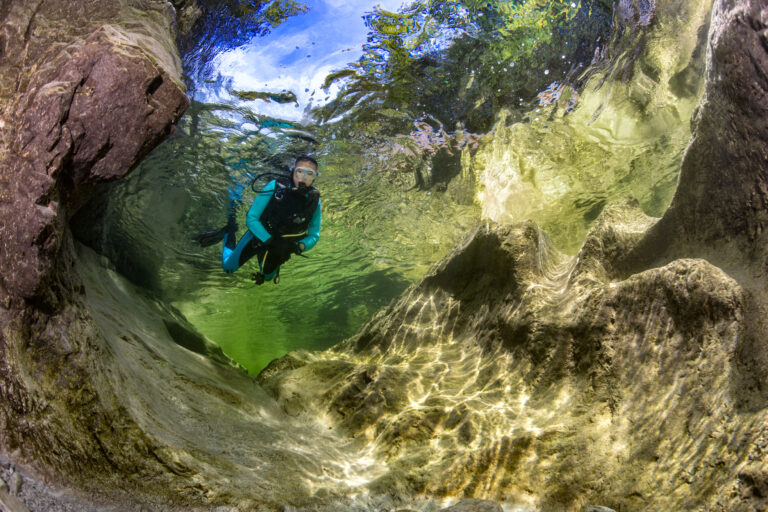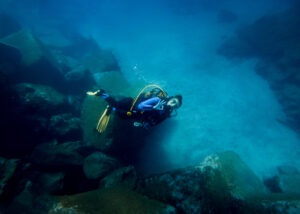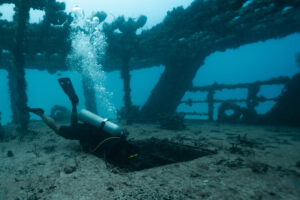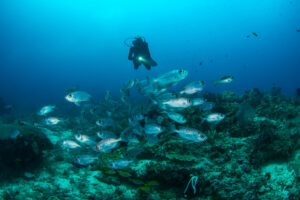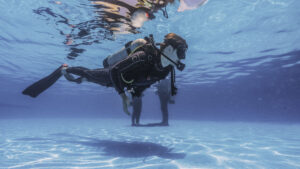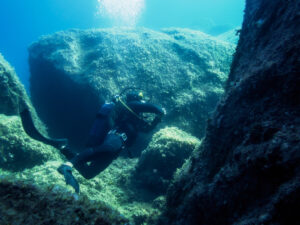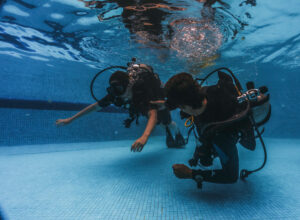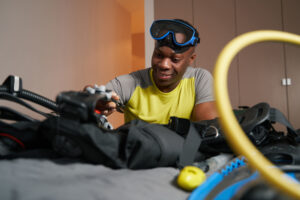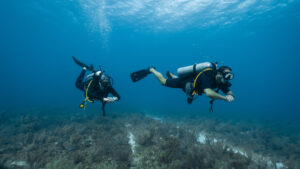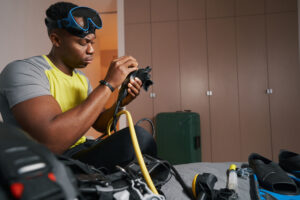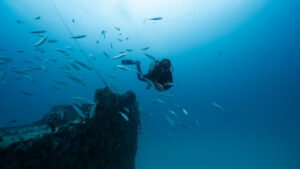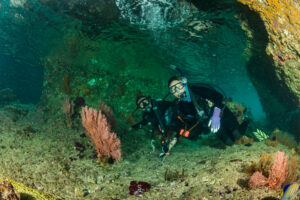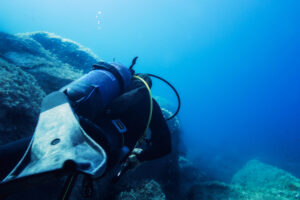What is Alternobaric Vertigo in Scuba Diving?
Alternobaric vertigo, commonly experienced by scuba divers, is a form of dizziness induced by unequal pressure changes in the middle ear. Though typically mild and short-lived, it can occasionally persist and cause complications if not properly addressed. This entry will explore the causes, symptoms, prevention, and management strategies for alternobaric vertigo during scuba diving.
Causes
Alternobaric vertigo occurs when there is a disparity in pressure changes within the middle ear cavities of both ears during a dive. This imbalance can result from several factors, including:
Barotrauma of Descent
As a diver descends, the increasing water pressure compresses the air in their middle ear. To equalize this pressure, they must allow air to flow from their Eustachian tubes into the middle ear. Inability to equalize the pressure effectively can lead to barotrauma, causing alternobaric vertigo.
Effects of Nasal Decongestants
Some divers may use nasal decongestants before diving to improve Eustachian tube function. However, these medications can wear off during a dive, resulting in unequal middle ear pressure and the onset of vertigo.
Anatomical Differences
Some individuals may have anatomical variations or conditions that impede the equalization process, such as narrow or obstructed Eustachian tubes, which can increase the risk of experiencing alternobaric vertigo.
Symptoms
When divers experience alternabaric vertigo, they often report the following sensations:
Dizziness
This can range from a mild, transient feeling of unsteadiness to a severe, incapacitating loss of balance.
Nausea
Dizziness may be accompanied by a sensation of queasiness or even vomiting.
Spatial Disorientation
Divers may feel disoriented and lose their sense of direction, which can be particularly dangerous underwater.
Tinnitus
A ringing or buzzing sound in the ears may also occur alongside vertigo.
Fullness or Pain in the Ear
This symptom results from the pressure differences between the two middle ear cavities.
Prevention
Divers can take several measures to prevent or minimize the occurrence of alternobaric vertigo:
Proper Equalization Techniques
Learning and practicing various equalization methods, such as the Valsalva maneuver, Frenzel technique, or Toynbee maneuver, can help divers equalize middle ear pressure more effectively.
Gradual Descent
Descending slowly and pausing at regular intervals can give the middle ear more time to adjust to pressure changes, reducing the risk of vertigo.
Monitoring Decongestant Usage
If using nasal decongestants, divers should ensure they are long-lasting and avoid diving if they are not confident in their ability to equalize without medication.
Pre-Dive Ear Health Assessment
Divers should assess their ear health before diving, avoiding dives if they have any signs of infection or congestion that could impair equalization.
Management
If a diver experiences alternobaric vertigo during a dive, they should take the following steps to manage the situation:
Signal to Dive Buddy
Informing their dive buddy of the issue is crucial for maintaining safety and receiving assistance if needed.
Stop Descent
The diver should halt their descent and attempt to equalize the pressure in their ears using the techniques they have learned.
Ascend Slightly
If equalization is not possible, the diver should ascend slightly to reduce the pressure difference and alleviate vertigo symptoms.
Monitor Symptoms
The diver should continue to assess their condition and adjust their dive plan accordingly, potentially aborting the dive if symptoms persist or worsen.
Post-Dive Evaluation
After the dive, the affected individual should consult a diving or ear, nose, and throat (ENT) specialist to assess the cause of the vertigo and discuss potential preventive measures for future dives.
Complications
Although alternobaric vertigo is usually mild and self-limiting, persistent symptoms or failure to address the underlying cause can lead to complications:
Inner Ear Damage
Prolonged unequal pressures between the middle ear cavities can result in damage to the delicate structures of the inner ear, potentially causing hearing loss or balance disorders.
Eardrum Rupture
In extreme cases, the pressure difference can cause the eardrum to rupture, leading to pain, hearing loss, and an increased risk of ear infections.
Decompression Illness
If a diver with vertigo ascends too rapidly to alleviate symptoms, they may be at risk of developing decompression illness (DCI), which can lead to serious neurological or musculoskeletal complications.
Dive Accidents
The disorientation and impaired judgment associated with alternobaric vertigo can increase the risk of dive accidents, such as collisions with underwater obstacles, running out of air, or becoming separated from one’s dive buddy.
Key Takeaways
Alternobaric vertigo, though often mild and temporary, can pose risks to scuba divers if not properly managed. Understanding its causes, symptoms, prevention, and management strategies is crucial for ensuring a safe and enjoyable diving experience. Divers should prioritize proper equalization techniques, remain aware of their ear health, and communicate with their dive buddies to maintain safety in the event of alternobaric vertigo.

